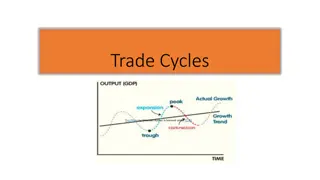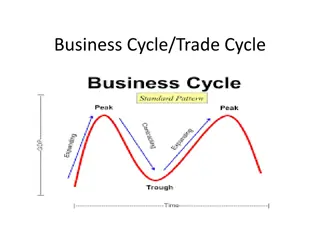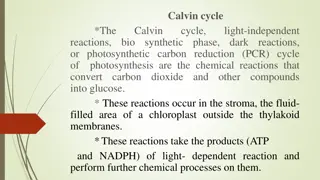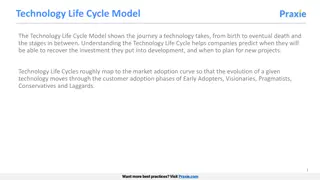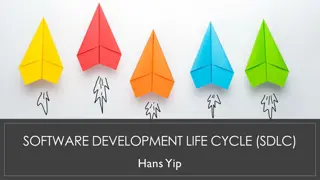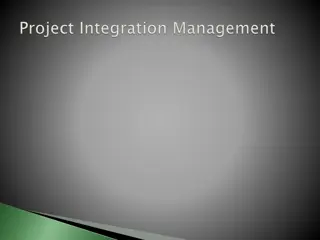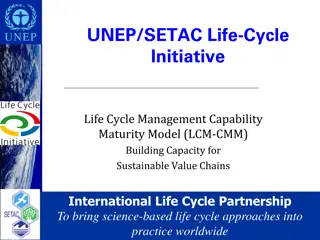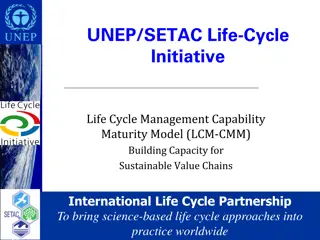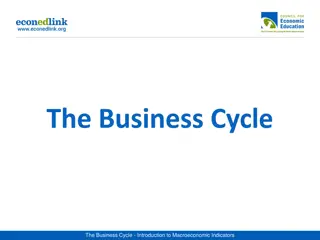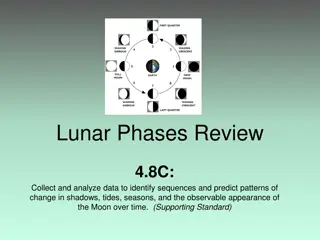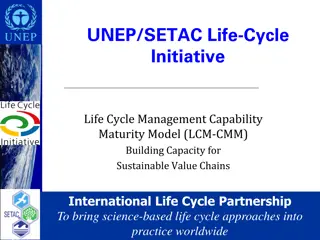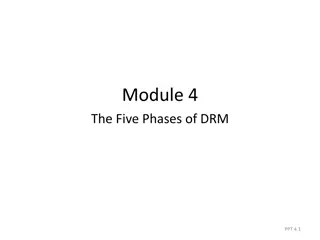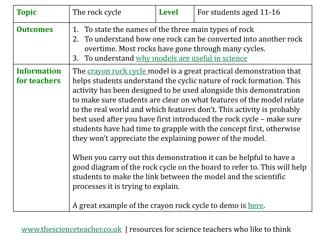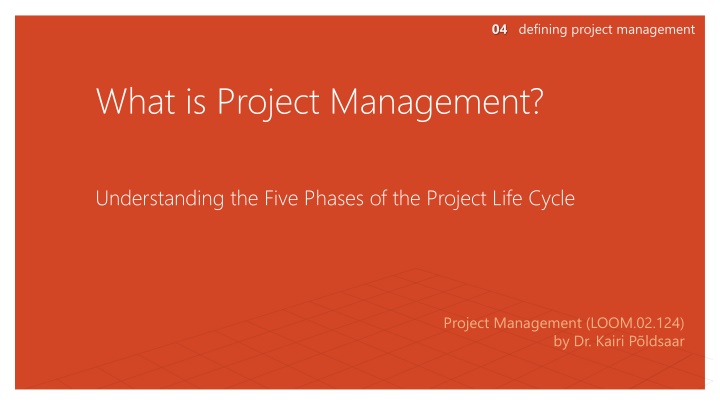
Defining Project Management: Five Phases of Project Life Cycle
Project management involves initiating, planning, executing, controlling, and closing work to achieve specific goals within a specified timeframe. The project life cycle consists of five key phases: defining, planning, executing, controlling, and closing. Managing people is essential in managing projects, ensuring tasks are defined, goals are clear, and success criteria are met. Planning is crucial as it provides a roadmap for the project, reduces uncertainty, improves efficiency, and helps measure work against objectives. Throughout the project, changes may occur in scope and plans, emphasizing the need for adaptability and constant monitoring by the project manager.
Download Presentation

Please find below an Image/Link to download the presentation.
The content on the website is provided AS IS for your information and personal use only. It may not be sold, licensed, or shared on other websites without obtaining consent from the author. If you encounter any issues during the download, it is possible that the publisher has removed the file from their server.
You are allowed to download the files provided on this website for personal or commercial use, subject to the condition that they are used lawfully. All files are the property of their respective owners.
The content on the website is provided AS IS for your information and personal use only. It may not be sold, licensed, or shared on other websites without obtaining consent from the author.
E N D
Presentation Transcript
04 defining project management What is Project Management? Understanding the Five Phases of the Project Life Cycle Project Management (LOOM.02.124) by Dr. Kairi P ldsaar
04 defining project management DEFINING PROJECT MANAGEMENT Project management Project management is the practice of initiating initiating, planning planning, executing executing, controlling controlling, and closing closing the work of a team to achieve specific goals goals and meet specific success criteria success criteria at the specified time time.
05 project management life cycle Project Life Cycle Defining 1 Planning 2 Executing 3 Controlling 4 Closing 5 Project Life Cycle was first published by: Weiss, J.W. & Wysocki, R.K. 1991. 5-Phase Project Management: A Planning and Implementation Guide. Reading, MA: Addson-Wesley.
05 project management life cycle Defining the area of responsibility THE SCOPE TASK NO 1: TASK NO 1: Defining the work to be done 1. What is the problem/opportunity being addressed? 2. What is the goal of the project? 3. What objectives are necessary in order to accomplish the goal? 4. How will we determine if the project has been successful? 5. Are there any assumptions, risks, or obstacles that may affect success? MANAGING PEOPLE = MANAGING PROJECTS
05 project management life cycle THE SCOPE CHANGES!
05 project management life cycle Planning is it really necessary? PLANNING IS THE ROADMAP TO HOW THE WORK WILL BE DONE! 1 2 Planning reduces uncertainty Planning improves efficency Planning provides a basis for measuring work planned against work performed Planning gives a better understanding of goals and objectives 3 4
05 project management life cycle THE PLAN CHANGES!
05 project management life cycle Executing PROJECT MANAGER is constantly monitoring and adopting to the BIG BAD CHANGE! 1 Organizing people Identifying resourses 3 2 Scheduling workers and activities
05 project management life cycle Closing CLOSING PHASE TENDS TO BE MOST OFTEN NEGLECTED 3 2 1
05 project management life cycle Causes of Project Failure A goal without a plan is just a wish! Projects that have failed generally display several of the following characteristics Arrow pointing right with a hyperlink to the PowerPoint team blog. Select the image to visit the PowerPoint team blog The customer s conditions of satisfaction have not been negotiated place No one seems to be in The Schedule is too The project plan is not used Sufficient Resources have Project status is not plan is in place its originaal goals management process in No formal communications The project has lost sight of There is no change- The project no longer has a high priority charge optimistic to manage the project not been commited monitored against the plan Antoine de Saint-Exup ry Arrow pointing right with a hyperlink to free PowerPoint training. Select the image to access free PowerPoint training
SCOPE THE PROJECT SCOPE THE PROJECT POS POS Project Overview Statement Project Overview Statement Project Overview Statement Problem / Opportunity Goal Objectives Success Criteria Assumptions, Risks, Obstacles Project Name Project number Project team
Organizing people Lets do practical exercise to illustrate a point about differences



